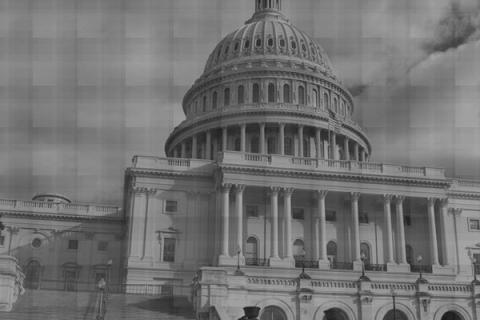Hear me out first, before you excoriate me. I'm not a big fan of Senator Bunning, but I think he may have it right on taking a stand against yet another extension of unemployment benefits. It's undeniably true that we're still stuck in a deep recession, and it's very sad that millions of Americans remain out of work. But, there's another, legitimate consideration that is being lost in the emotional aspect of this human and fiscal dilemma. Where are we going to get the money?
That is Bunning's point, and it's too late he had to wait till this moment to take a stand. He should've done it a long time ago during the big spending, deficit years of the Bush administration. But, better late than never as the old adage goes. Bunning wants to use unspent bailout funds so that extended benefits do not generate an even bigger deficit. It's either that, borrow more from China and Japan, or print the money out of thin air. The Bush and Obama administrations have utilized the last two options to put us deeper and deeper into debt and to devalue the Dollar.
To be honest, though, I actually disagree with Bunning's specific proposal to tap $10 billion of unspent bailout funds. Those funds are taxpayer dollars, seized back in late 2008 and early 2009 for Wall St's follies. That money deserves to go back into the pocket books of the American people, forthwith. Realistically, of course, that's not an option so Bunning's point about finding $10 billion without going deeper into debt remains a valid concern.
The Atlantic's Megan McArdle gets to the heart of the matter. In today's online editorial, she challenges the so-called fiscally conservative Bunning to "find some useless defense appropriations to complain about." Her assessment is spot on. The $10 billion of unemployment benefits should come from a spending cut somewhere else in the budget. Specifically related to defense spending, though, in her implicit critcisim of Bunning's double standard as a big spending national security hawk, she loses sight of the fact that the Obama administration now spends more money on the military than the 50 states spend on healthcare, education, welfare, and safety combined. In fact, "defense" spending, both at home and abroad, is at an all-time record high under the Obama administration and Democratic-led Congress. So, instead of pointing the finger at Bunning (and GOP war hawks), McArdle should take a long, hard look at current leadership, leadership that was supposed to change the profligate ways of the GOP when it came to foreign policy.
While the $10 billion in unemployment benefits could easily come from cuts in the bloated military budget, but won't, they could also come from the veritable boom in federal employment during the Great Recession. Federal employment and salaries have thrived as the rest of the nation has been pummeled by double digit unemployment. How about the Obama administration and Democratic Congress freeze federal hiring and/or institute a small (3-5%) pay cut for its massive reservoir of federal employees? You'd have your $10 billion pretty quickly, and the $1.4 trillion deficit wouldn't get any bigger.
These are just a couple of ideas. There are probably many more.
And while we're at it, considering how often we hear how well the $787 billion stimulus package worked or how well the economy is recovering, perhaps we should take a long, hard look at why, if the recovery is going so well, Congress has to keep extending unemployment benefits over and over again? It is eerily similar to the Federal Reserve's repeated pronouncements of a "nascent recovery", while it keeps interest rates at all-time record lows as a prop for an extremely weak economy. After awhile, it becomes apparent that talk is cheap and current economic models are not working.
So, while Bunning takes a beating as a stubborn, stupid, and cold-hearted politician, he may be doing America a much-needed favor. If we can move past the emotional arguments, we may discover that the repeated lack of fiscal discipline is leading us to a debt crisis that will make today's unemployment rate look tame in comparison.
